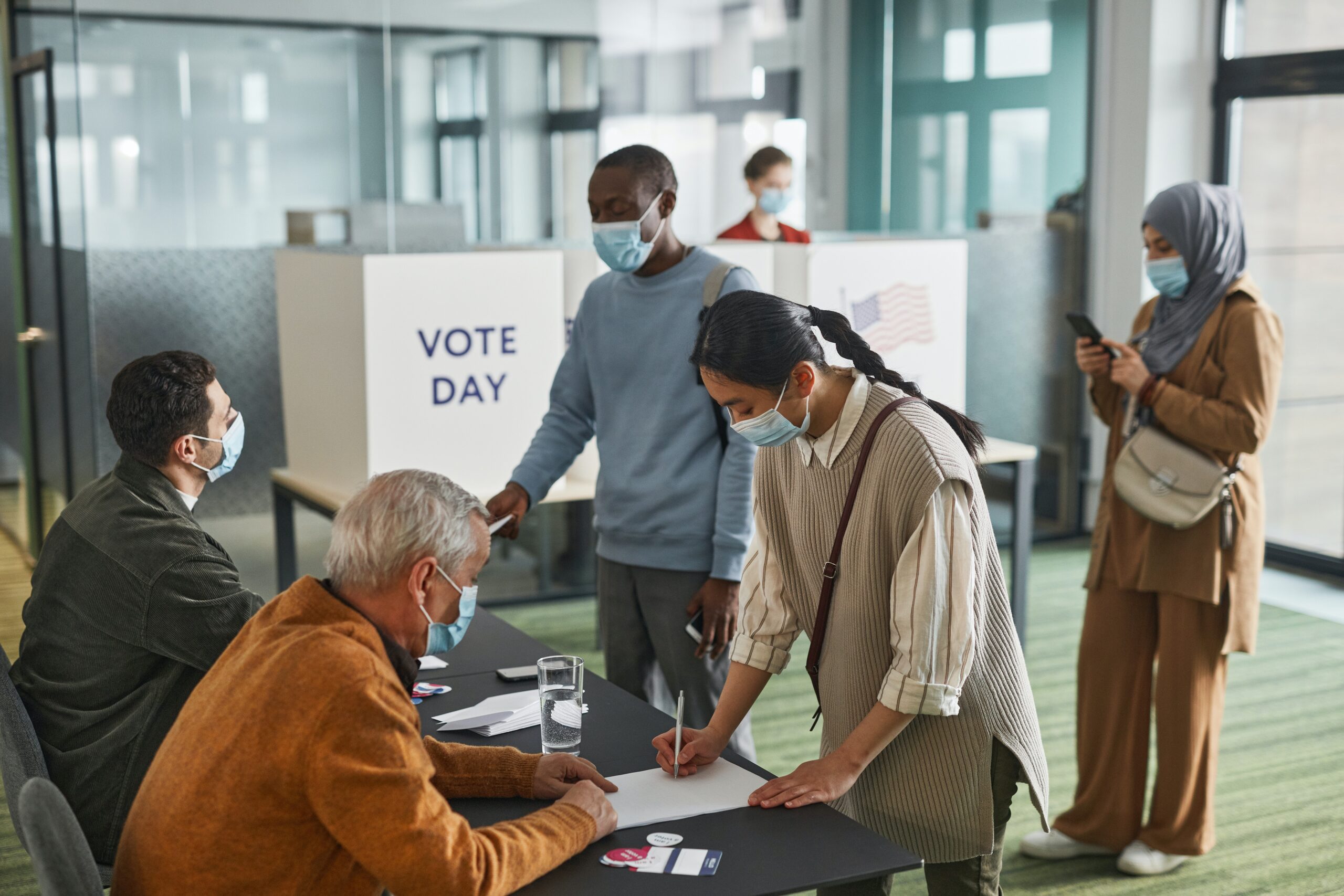The denial of voting rights to people with felony convictions is a complex issue with a long history in the United States. As of 2023, 48 states disenfranchise people with felony convictions, either permanently or for a period of time. This means that millions of Americans are unable to vote because they have been convicted of a felony. Stowell Crayk Law Firm and each felony lawyer on their team is committed to advocating for fair and just legal reforms. They work hard to protect the rights and interests of individuals with felony convictions and ensure that their voices are heard.
There are a number of arguments for and against disenfranchisement. Proponents argue that people who have committed felonies have broken the social contract and should not be allowed to participate in the democratic process. They also argue that disenfranchisement helps to deter crime and protect public safety.
Opponents of disenfranchisement argue that it is a form of punishment that is not proportional to the crime committed. They also argue that it disenfranchises a disproportionate number of people of color and low-income people.
Psychological and Social Impact of Disenfranchisement on Individuals
Disenfranchisement can have a number of negative psychological and social consequences for individuals. It can lead to feelings of shame, isolation, and disempowerment. It can also make it more difficult for people to reintegrate into society after they have been released from prison.
One study found that people who were disenfranchised were more likely to experience depression, anxiety, and substance abuse. They were also more likely to be unemployed and homeless.
Another study found that those with incarcerated family members are less likely to vote, engage with elected officials, or participate in civic activities. Addressing this issue can promote a more equitable and inclusive society, enabling broader participation in the democratic process.
How a Felony Lawyer Can Help You with Disenfranchisement
A lawyer from Stowell Crayk can help you with disenfranchisement in a number of ways. First, they can help you understand the laws in your state and the different ways that you may be disenfranchised. They can also help you determine if you are eligible to have your voting rights restored.
If you are eligible to have your voting rights restored, a lawyer can help you with the application process. This can be a complex process, and a felony lawyer can help you ensure that your application is complete and accurate.
If you are denied the opportunity to have your voting rights restored, your lawyer can also help you appeal the decision. They can also help you file a lawsuit if you believe that your rights have been violated.
In addition to helping you with the legal aspects of disenfranchisement, your legal representation can provide you with support and guidance. They can help you understand the impact that disenfranchisement can have on your life and help you develop strategies for coping with it.
Understanding the laws in your state:
A Felony lawyer is well-versed in the intricate web of state laws governing felony disenfranchisement. They can provide you with a comprehensive understanding of the laws in your specific state, which is crucial because these laws can vary significantly. By explaining the legal framework, your lawyer will clarify how disenfranchisement impacts you based on your state’s regulations.
For instance, some states have stringent permanent disenfranchisement laws, barring individuals with felony convictions from ever regaining their voting rights. In contrast, other states adopt a more flexible approach, allowing voting rights restoration after a certain waiting period or once an individual completes their sentence, probation, or parole. Your lawyer will ensure you are well-informed about your state’s particular rules and how they apply to your case.
Determining if you are eligible to have your voting rights restored:
Eligibility for voting rights restoration can be a complex matter. Determining whether you meet the criteria set by your state requires a thorough understanding of these laws. Stowell Crayk lawyers, with their expertise, can assess your unique circumstances to determine your eligibility for voting rights restoration.
In some states, eligibility hinges on factors such as the type of felony, the completion of a sentence, and the fulfillment of financial obligations like fines or restitution. Your lawyer will carefully examine these criteria in light of your situation, guiding you through the eligibility determination process.
Helping you with the application process:
The application process for voting rights restoration can be a daunting endeavor. A Felony lawyer can provide invaluable assistance during this crucial stage. They will work closely with you to ensure that your application is not only complete but also accurate.
This involves helping you gather and organize the necessary documentation, such as proof of your felony conviction, evidence of sentence completion, and payment records for fines or restitution. Your lawyer can also assist you in drafting a compelling personal statement explaining why your voting rights should be reinstated. Their experience ensures that you present a strong case during the application process, improving your chances of success.
Appealing a decision to deny your voting rights:
If you face denial in your quest to regain your voting rights, your felony legal representation will prove to be an essential ally. They will guide you through the appeals process, which can be intricate and intimidating. Understanding the appeals process is crucial, and a felony lawyer will explain it in detail, helping you comprehend the steps and requirements.
Appeals can involve legal arguments and the presentation of compelling evidence, making legal representation critical. Your lawyer will craft a robust case on your behalf, striving to overturn the denial and ensure your rights are rightfully restored. Their experience in the appeals process can be instrumental in enhancing your chances of success, offering you a path to justice.
In addition to their legal expertise, felony lawyers can also provide emotional support and guidance, helping you navigate the personal and societal impacts of disenfranchisement. They can assist you in coping with the challenges and consequences of being disenfranchised, fostering resilience and empowerment.
Conclusion
Disenfranchisement is a serious issue that can have a significant impact on your life. If you have been disenfranchised, or if you are concerned about the possibility of disenfranchisement, it is important to speak with a felony lawyer. A felony lawyer can help you understand your rights and options, and they can advocate for you throughout the process.
Stowell Crayk Law Firm is a criminal defense firm that represents clients in all aspects of criminal law, including disenfranchisement. Our team of felony lawyers has years of experience helping people with disenfranchisement issues. We understand the laws in your state and the different ways that you may be disenfranchised. We can also help you determine if you are eligible to have your voting rights restored and assist you with the application process.
If you have been denied the opportunity to have your voting rights restored, we can help you appeal the decision. We can also help you file a lawsuit if you believe that your rights have been violated.
Our lawyers understand that disenfranchisement can have a profound impact on your life. We want to provide you with the support and guidance that you need to navigate the process of restoring your voting rights.

